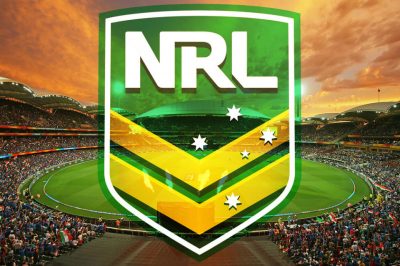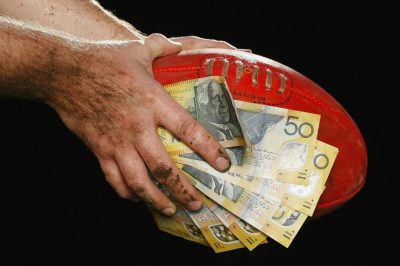 The Australian Rugby League Commission has failed to reach an agreement with sportsbooks on the amount they must pay in fees for offering bets on its events before the start of the new NRL season. The Commission has been in the process of negotiating the fees with bookmakers for the past few weeks and insists on collecting the additional amount of AU$10 million per year. This corresponds to an increase of 1/3 in the revenue the NRL would collect from bookmakers.
The Australian Rugby League Commission has failed to reach an agreement with sportsbooks on the amount they must pay in fees for offering bets on its events before the start of the new NRL season. The Commission has been in the process of negotiating the fees with bookmakers for the past few weeks and insists on collecting the additional amount of AU$10 million per year. This corresponds to an increase of 1/3 in the revenue the NRL would collect from bookmakers.
The previous arrangements in regard to how much the sportsbooks must pay in taxes to the NRL expired at the beginning of this month. Since the new season has already started, the old arrangement was extended for a month to give the parties more time to reach an agreement.
A wagering committee was set up to work on the issue. Nick Weeks, NRL’s Chief Operating Officer is in charge of the sub committee while Greg Purcell who previously headed New Zealand Thoroughbred Racing was appointed as a consultant to help with the dialog between the parties.
The idea of the AU$10 million increase was met with disapproval on behalf of sports betting operators in Australia, who argue that the taxes are burdensome enough as they are, with the NRL already imposing the highest fees of all Australian codes.
Peter V’landys, who previously headed Racing New South Wales, recently joined the Australian Rugby League Commission and some argue his appointment could cause the NRL to seek higher returns from wagering taxes to fund its franchises, 16 in number. Such concerns seem justified considering it was Mr. V’landys who managed to win a court battle that imposed a flat fee on the wagering turnover of sportsbooks from thoroughbred races back in 2012.
Bookmakers Not Happy with the Fee Increase
 Sportsbooks in Australia strongly oppose the changes NRL is pushing for, their main argument being any further increases in fees would significantly decrease the amount of money they pour into the promotion and sports betting markets for NRL events.
Sportsbooks in Australia strongly oppose the changes NRL is pushing for, their main argument being any further increases in fees would significantly decrease the amount of money they pour into the promotion and sports betting markets for NRL events.
The drop in promotion would also reflect negatively on the NRL itself as it may lead to fewer people betting on the league’s event. It makes sense this might influence negatively the revenue the NRL generates from sportsbooks. A fee increase on behalf of the NRL can cause sportsbooks to up the promotion of events by rivals like the Australian Football Association due to their lower taxes.
Another change the NRL wishes to introduce strives to impose a 20% tax on the gross revenue from bets which involve four or more options like margin betting and the first-try football markets. This increase corresponds to 3% tax on the turnover the sportsbooks generate from this type of wagers. In comparison, a tax of 1.2% is traditionally imposed on the turnover of standard bets on the head-to-head and the line betting markets. In addition, a tax on online gambling has already been introduced in Southern Australia and it is expected that New South Wales will follow in its footsteps.
The NRL, whose partnership with operator Sportsbet expires at the end of 2020, has been plagued by integrity issues for the past two years, including the de-registering of former Wests Tigers winger Tim Simona back in March 2017. The now-former rugby player received an indefinite ban after it was established he was betting on players from rival teams in matches he also was involved in. In addition to this offence, Simona admitted to selling autographed jerseys and keeping the proceeds to himself instead of donating them to charity organizations.
The NRL was also involved in an investigation on match fixing. Although no charges were pressed, the investigation led to the introduction of tougher measures which aimed at reducing unexpected team chances and prohibiting players from using their mobile devices an hour prior to the start of sporting events.